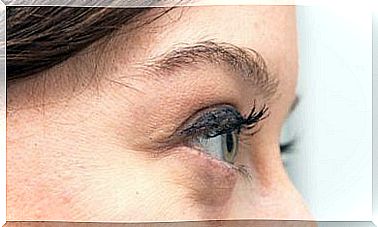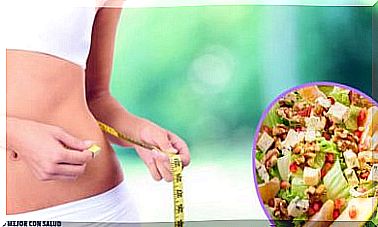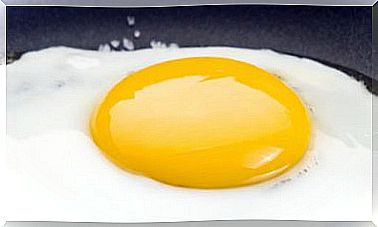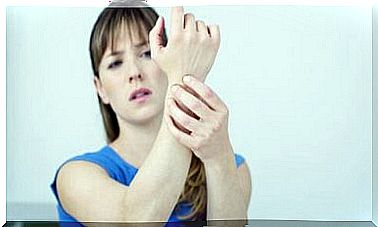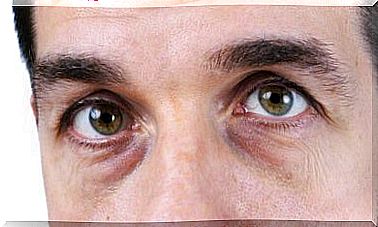These Are The Foods You Should Eat When You Have Cirrhosis
Cirrhosis is an incurable disease. It is therefore very important to know what diet you are following and what other aspects you should be aware of. Find out more about it in today’s article!
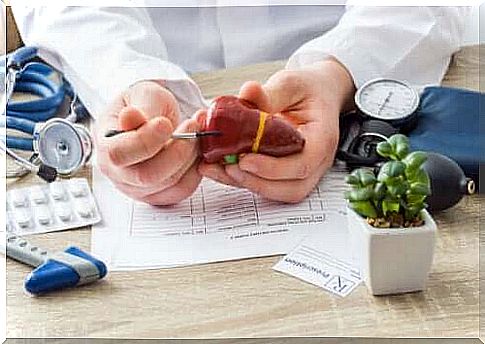
The foods people with cirrhosis should eat depends on the stage the disease is in. Given that there is no cure, setting long-term goals is a priority as they will need to be sustained over the years.
This pathology is the end result of chronic liver damage. It affects approximately 5.5 million people in the United States, according to the American College of Gastroenterology . In addition, the disease causes an estimated 26,000 deaths annually.
What exactly is cirrhosis?
A cirrhosis is a chronic disease in which the cells in specific areas of the liver die. This leads to fibrosis (a type of scar). As a result, nodules replace the liver tissue, which results in a change in the structure and functionality of this organ.
According to various researches, excessive alcohol consumption is one of the main causes of this disease. In addition, biliary congestion, chronic hepatitis B or C and other liver diseases can also be triggers. It is very important to know the different causes. Because alcoholics will not be fed the same diet as other patients.
The stages of the disease
There are two basic stages in this condition. The first is known as compensated cirrhosis. If left untreated, this condition will develop into advanced or decompensated cirrhosis. It occurs when cell destruction progresses over time. The diet must be extremely strict in the last stage of the disease, because the following symptoms occur:
- Jaundice. The skin and mucous membranes turn yellow due to the increased bilirubin levels.
- Ascites. These are accumulations of fluid in the abdomen that are caused by changes in the internal pressure of the blood vessels.
- Encephalopathy. It leads to mental confusion due to the presence of toxic substances in the brain.
- Bleeding in the digestive tract.
The prevalence of malnutrition
Malnutrition is a very common characteristic of these patients. Various studies suggest that up to 25% of compensated cirrhosis and 80% of patients with advanced cirrhosis suffer from it. In general there is a loss of muscle mass (increased in men) and adipose tissue.
In addition, malnutrition is even more pronounced in alcoholics. On the one hand, through the harmful effects of liver disease. In addition, there is a lack of variety in the general diet, which is due to the addictive habits.
Foods that people with cirrhosis should eat
In general , patients are not diagnosed with cirrhosis until the disease has progressed. For this reason, the main goal of nutrition is to provide the person with all the nutrients they need to avoid deficiency symptoms. In addition, people who have cirrhosis should generally adhere to a hepatic protective diet.
The study of nutritional care for patients with liver cirrhosis shows that patients with compensated cirrhosis have relatively normal nutritional requirements. Therefore, the diet must also contain all food groups and be low in fat.
According to the Spanish Association of Digestive Pathology, it must contain:
- White and red meat (it’s important to prioritize low-fat options )
- fish
- Eggs
- fruit and vegetables
- Cereals
- Vegetable oils (in moderation)
- Nuts (to a limited extent)
- Seeds
- Skimmed milk products
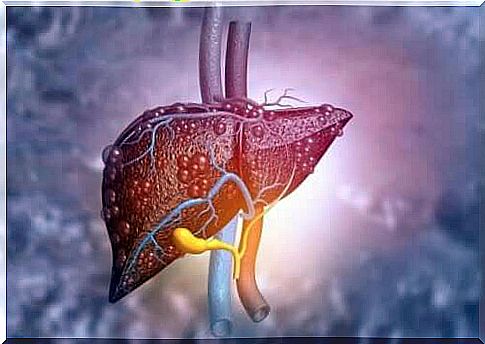
Nevertheless, the attending physician must assess each individual case individually. Research in this area has shown that protein intake should be between 1 and 1.5 grams per kilogram of body weight to prevent deficiency symptoms. Specialists also recommend spreading 5 light meals throughout the day.
In addition, all toxic substances (including alcohol, of course) must be completely eliminated from the diet. If alcohol abuse is the cause of this condition, not using it will slow down the progression of cirrhosis and significantly improve the prognosis.
Diet if you have noticeable symptoms of cirrhosis
The complications mentioned above occur in the decompensated phase of cirrhosis. During this phase, the patient has to limit the choice of foods he consumes. In addition, the diet must be tailored to the respective needs. This is evident from an article published in Farmacia Profesional magazine. The following should be taken into account:
- Fluid intake should be limited to 1.2 liters per day.
- In addition, sodium intake should be restricted, because it favors the accumulation of fluids and worsens ascites.
- In addition, the patient must also reduce his protein intake in order not to overload the liver. Because it is the organ that mainly metabolizes proteins.
When patients have encephalopathy, protein consumption can be limited to 0.5 grams per kilogram of body weight. The intake can then be increased gradually until a normal value is reached. However, no matter how small the amount, patients who choose to take this action must take additional branched-chain amino acid supplements to avoid further harm.
In addition, the intake of vitamin complexes can be considered – B vitamins and vitamin K are particularly important. The B vitamins prevent the development of neuropathies and vitamin K reduces the bleeding episodes that occur due to the clotting failure.
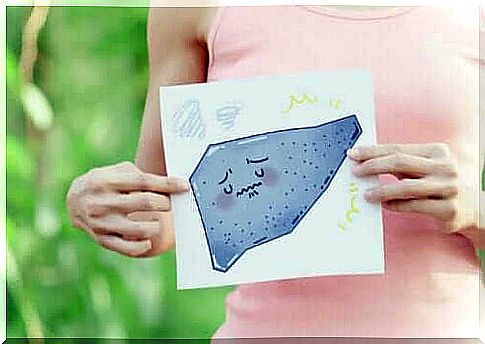
The possibility of a liver transplant
Patients with advanced disease may consider liver transplantation as a treatment option. However, one should keep in mind that the operation involves great risks and that it is not really the final solution because it requires intensive follow-up care.
Likewise, those who choose to have a transplant must continue to take medication afterward to prevent their bodies from rejecting the new organ. However, these drugs have side effects, many of which are hepatic.
Final thoughts on diet for cirrhosis
Regardless of whether the cirrhosis is stable or unstable, liver activity is always deficient. This leads to an accumulation of toxic substances in the body. Therefore, it is very important to strictly adhere to a nutrition plan to avoid complications.
The ideal would be medical supervision by a doctor and the composition of the most suitable diet by a nutritionist. This ensures that the patient’s general condition is monitored regularly and that they are eating appropriately. In addition, medication may also be required as the complexity of the disease does not allow for a straightforward approach to treatment.

